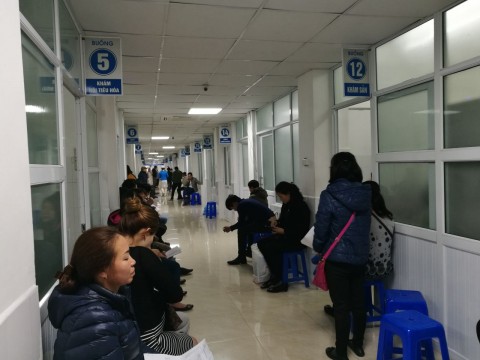Constipation During the Gap Year
Have you ever traveled to a new place and experienced constipation? Over the past few years, we have had many gap year students complain about constipation – usually within the first 2 months of being in the country. We had a vegetarian student who was eating only tofu- no vegetables, fruits, and definitely not a balanced diet. Another student was eating only potato chips and soda because they were too tired to cook or even go out at the end of the long day. This student ended up gaining weight and developing skin problems!
Constipation refers to bowel movements that are infrequent or hard to pass. The stool is often hard and dry. This can cause abdominal pain, bloating, and feeling like one has not completely passed the bowel movement. The good news is that there are many easy ways to prevent it.
For many students, the year in Israel is the first time they have had to make their own food plans and cook. While back at home, their parents were cooking well-rounded meals, and food was familiar and effortless for many. College-aged students often eat less healthy foods and have less well-rounded diets. Many programs have students making their own food at least part of the time, which takes a lot of forethought and effort. Programs that serve meals will often serve meals that include foods that may be unfamiliar to the students.
There are other causes of constipation, such as the side effects of common medications. Many students are on various medications for medical or mental health reasons. Many of these medications, including sleeping medication and some anti-depressants, can cause constipation as a side effect. The students must be aware of this and make sure that they avoid any unnecessary sleeping pills and other such medications if they are constipated. If they need prescription medications, they should begin a careful diet and hydration plan from the beginning of the school year.
Emotions can often influence our intestinal activity. For example, if someone is stressed, they might have irregular bowel movements. By definition, irritable bowel syndrome is alternating constipation and diarrhea, heavily affected by stress. It is important for students not to develop anxiety when they have irregular bowel movements because it could worsen the situation. https://www.healthcareisrael.com/blog/mental-health-during-your-gap-year-in-israel
Israel is a warm and dry country. This climate is often very different from climates where gap year students come from. Many students hydrate as much as they did at home. In most cases, this means that the students aren’t drinking enough water. Dehydration causes constipation!
Tips for avoiding constipation in gap year students:
- Hydrate hydrate hydrate. In Israel, at least 2 liters of water is needed daily to keep hydrated -even indoors. If spending time outside, a minimum of 3 liters daily is required. https://www.healthcareisrael.com/blog/yom-kippur-hydration
- Fruits and vegetables are a great way to prevent constipation. Israel is an agricultural country, so fruits and vegetables are easy to find and usually inexpensive.
- A balanced diet high in fiber, low in simple carbs and sugar can help maintain good intestinal health! Students going to programs that require cooking should learn how to make simple healthy foods from raw ingredients. Fiber is found in fruits, vegetables – the less processed, the better.
- Avoid sleeping medications or unnecessary medications that may cause constipation.
If constipation does not resolve after following these guidelines, students should seek medical attention at a family physician or school clinic. If they are at a school with EMA Care clinics, then make sure they schedule an appointment with the clinic health provider to discuss, including any medications taken.
From here at EMA Care, we wish you a healthy winter!!
When you subscribe to the blog, we will send you an e-mail when there are new updates on the site so you wouldn't miss them.







